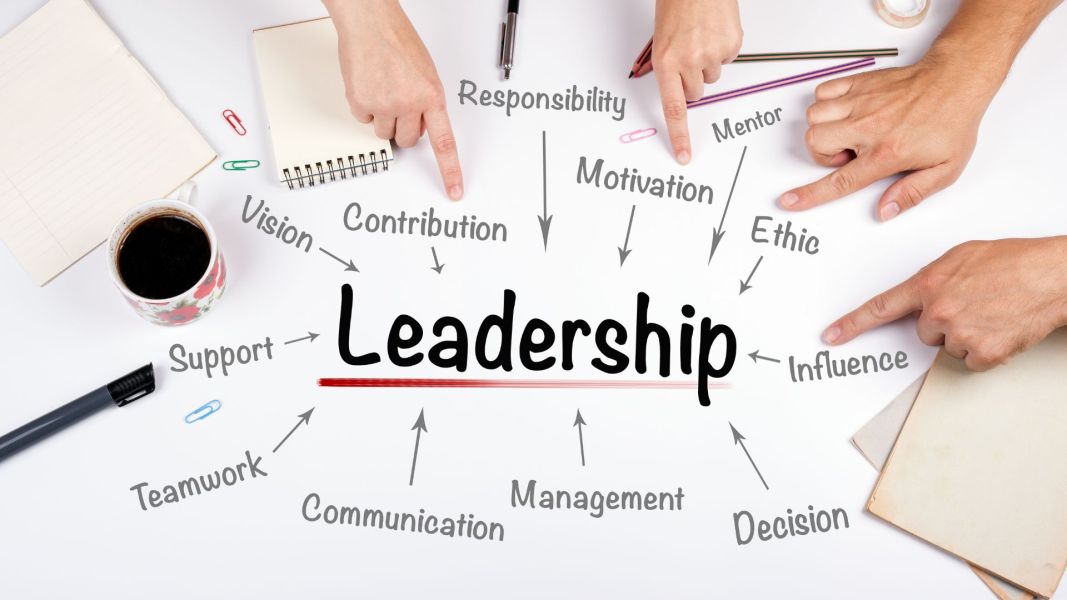The landscape of educational leadership is continually evolving. To foster an environment where students thrive, the role of educational leaders must be redefined and approached with a progressive mindset. For those aspiring to take on such impactful roles, an Educational Leadership degree is an invaluable step toward achieving this goal. This article explores what it means to be an effective leader in today’s schools and the strategies that help promote student success. To meet the varied needs of their teachers and students, educational leaders must constantly innovate and adapt to the current environment.

The Role of Educational Leadership
Educational leaders are essential in forming a school’s climate and culture. Their responsibilities range from managing administrative tasks to fostering a positive environment for teachers and students. Understanding what successful educational leadership entails can dramatically impact students’ quality of education. Leaders are often at the forefront of implementing school policies, mentoring teachers, and building a cohesive school community. They serve as the backbone of educational institutions, ensuring smooth operational processes, facilitating professional growth, and nurturing a culture of excellence and inclusivity within the school.
Successful educational leaders also act as agents of change, continuously seeking opportunities for improvement and innovation. By staying abreast of the latest educational trends and research, they can make informed decisions that positively impact their schools. Their influence extends beyond the school walls, as they often collaborate with community organizations, policymakers, and other educational stakeholders to create a supportive environment for learning and development. Selecting the right institution for an educational leadership degree is essential. Like Arkansas State University, the right institution offers specialized knowledge, mentorship, and resources to prepare leaders for complex educational challenges. A robust program fosters a network of professionals and provides practical experiences that empower graduates to influence positive change in academic settings.
Qualities of Effective Educational Leaders
Influential educational leaders possess many qualities that enable them to manage their schools efficiently. These include strong communication skills, empathy, and the ability to make data-driven decisions. Additionally, these leaders must be adept at solving complex problems and demonstrating unwavering integrity. Their ability to inspire and motivate others through their vision and actions is essential for creating a thriving educational environment.
Strong Communication Skills
One of the cornerstone qualities of a successful educational leader is exceptional communication skills. Clear and open communication helps build trust and transparency among staff, students, and parents. Influential leaders use various communication channels to convey and understand information accurately. This includes holding regular meetings, sending newsletters, and actively listening to address concerns and provide support when needed.
Empathy and Integrity
Leaders who possess empathy are better able to recognize and meet the needs of their staff and students. Putting themselves in other people’s shoes can foster a welcoming environment where everyone is treated with respect. Coupled with integrity, empathy builds a solid ethical foundation that others in the school can admire and emulate. Leaders who demonstrate honesty, fairness, and consistency in their actions inspire trust and respect, fostering a positive school culture.
Strategies for Promoting Student Success
Creating an environment where students can excel requires strategic planning. Incorporating student-centered learning, leveraging engagement techniques, and fostering a supportive community are just a few strategies that can be implemented to enhance student outcomes. Moreover, ongoing assessments and feedback loops are essential in identifying areas for improvement. Schools prioritizing student well-being and individualized learning plans often have higher academic success rates.
One effective strategy is implementing differentiated instruction and tailoring teaching methods and materials to meet student’s diverse needs and learning styles. Teachers can better engage students and support them in realizing their full potential by offering a variety of learning experiences. Encouraging teamwork, creativity, and critical thinking in the classroom can significantly impact students’ motivation and success.
Continuing Education and Professional Development
Education is an ever-evolving field; staying up-to-date is crucial for any educational leader. Continuing education and professional development opportunities allow leaders to refine their skills and adopt new strategies that reflect current educational trends. Participating in these initiatives also equips leaders to handle the particular issues that emerge in their educational institutions. By embracing lifelong learning and professional development, academic leaders can remain practical and relevant in an ever-changing educational landscape.
Attending conferences, applying to graduate programs, taking online courses, and becoming a member of professional associations are just a few ways to further your professional development. These opportunities provide leaders access to the latest research, best practices, and a network of peers who share their commitment to excellence in education. By continuously seeking to enhance their knowledge and skills, educational leaders can stay ahead of the curve and drive positive change in their schools.
Conclusion
Educational leadership is multifaceted and vital for school success. By understanding the qualities of influential leaders, implementing successful strategies, and adapting to technological advancements, academic leaders can create environments where teachers and students can succeed. Continuous professional development ensures leaders remain at the forefront of educational innovation and efficacy. Ultimately, academic leaders’ commitment and dedication to their schools’ growth make a profound difference in the lives of their students and the broader community.

Founder Dinis Guarda
IntelligentHQ Your New Business Network.
IntelligentHQ is a Business network and an expert source for finance, capital markets and intelligence for thousands of global business professionals, startups, and companies.
We exist at the point of intersection between technology, social media, finance and innovation.
IntelligentHQ leverages innovation and scale of social digital technology, analytics, news, and distribution to create an unparalleled, full digital medium and social business networks spectrum.
IntelligentHQ is working hard, to become a trusted, and indispensable source of business news and analytics, within financial services and its associated supply chains and ecosystems

























